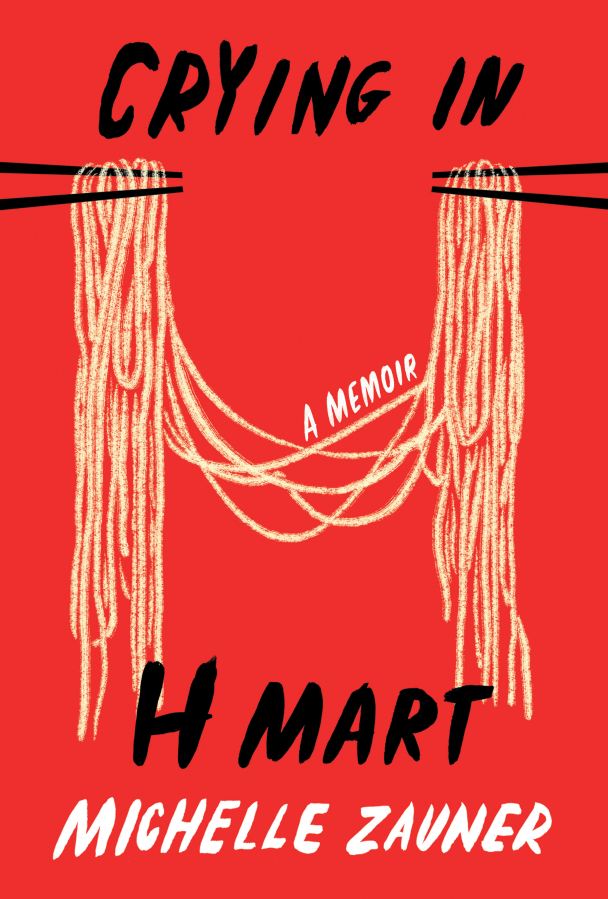Whenever I drive by H Mart, I think about Michelle Zauner.
Three years ago, Zauner, who grew up in the woods south of Eugene, published “ Crying in H Mart,” a New Yorker essay about food, grief and discovering cultural identity through food. In the essay, which was widely shared, Zauner walked the aisles of the big box Asian supermarket, moved to tears by memories of her Korean mom, who died after a brutal fight with gastrointestinal cancer in 2014.
Turns out, that essay was just the first chapter in a fine new memoir of the same name, a book that details Zauner’s return to Oregon to help care for her mother, estrangement from her Jewish-American father and attempts to rewind the effects of a rebellious childhood while unlocking her Korean identity. Zauner will discuss the book during a virtual Powell’s event on Thursday, April 29.
Until now, Zauner has been best known as Japanese Breakfast, an indie rock band poised for its own breakout thanks to a buoyant new album, “Jubilee,” set to come out just two months after the book. Two singles have been released so far, each with a self-directed video: “ Be Sweet,” a fun, funky pop song with 80s synth vibes and hammy visuals nodding to “The X-Files” (by way of the Beastie Boys’ “ Sabotage “); and “ Posing in Bondage,” a more downbeat, electronic track. In the video, Zauner, dressed in a black leotard with flying monkey wings, chin bloodied like a sated vampire, rides a hoverboard through the same Los Angeles supermarket where they filmed the parking lot scene in 2018′s “A Star is Born.”
After two albums that dealt with the same heavy subject matter as her memoir, the songs feel like a reawakening, and a relief. It feels right that they’re coming out in spring, albeit a year later than originally planned.



